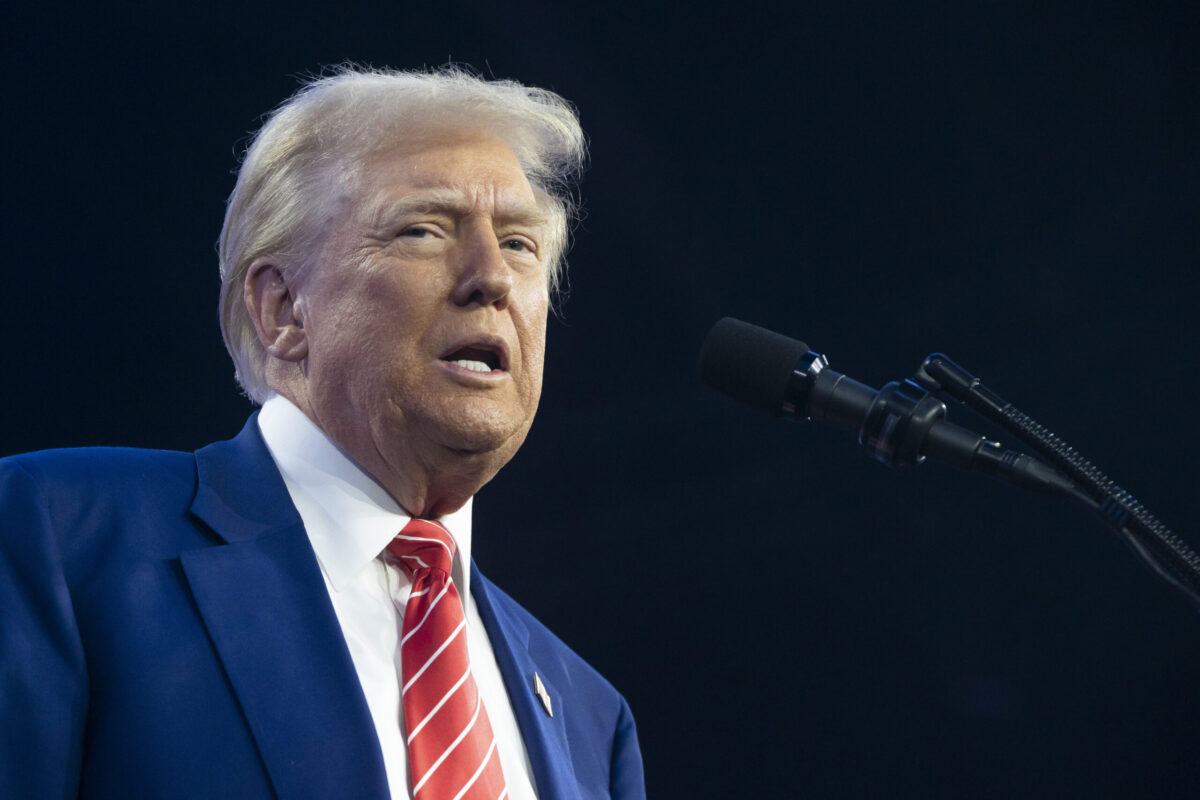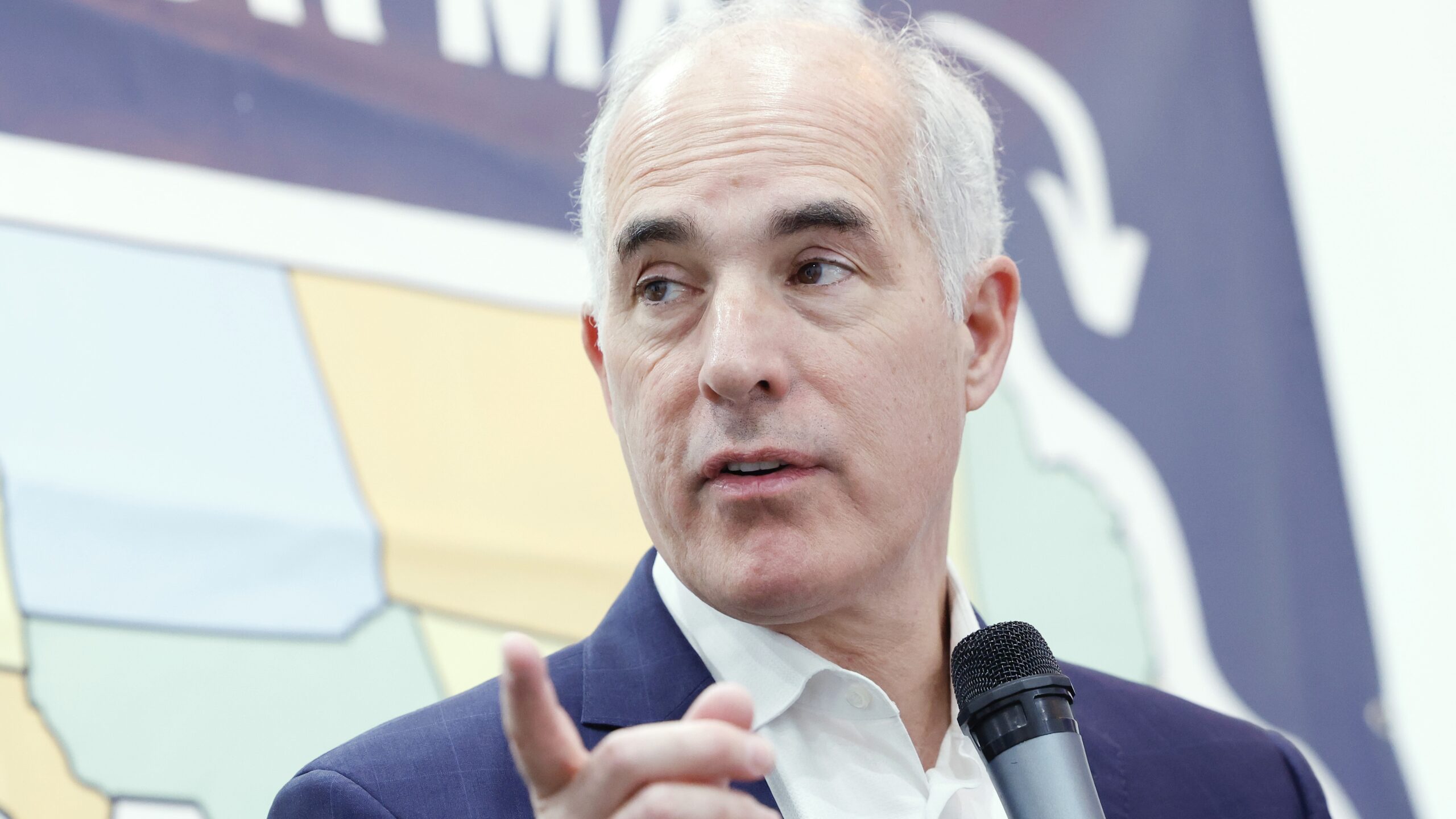After a decade, blue state turns on prosecutorial leniency
70% landslide adopts tough-on-crime plan, voters toss progressive agenda



NEWPORT BEACH — California has entered a period of cognitive dissonance. Proposition 36, the state’s tough-on-crime proposal repudiating a decade of leniency, won in a landslide with 70% of the vote Tuesday. Voters are also now rejecting lenient progressive prosecutors – in the most direct way possible.
Los Angeles District Attorney George Gascon, author of the 2014 ballot initiative most Republicans and many Democrats blame for the retail theft crime wave, previously survived two recalls over the past two years even when voters in San Francisco, one of the most liberal cities in the country, ousted his ally Chesa Boudin in 2022.
But on Tuesday, former federal prosecutor and Republican-turned-independent Nathan Hochman soundly defeated Gascon 61.4% to 38%. Voters also appear poised to reject a ballot measure Newsom backed, increasing the minimum wage to $18 an hour. Another Democrat-backed measure aimed at bolstering apartment rent control failed Tuesday.
Despite California’s tectonic shift to the right and the nation’s defeat of fellow San Francisco liberal Kamala Harris on Tuesday, it’s business as usual for Gov. Newsom and his hand-picked state Attorney General Rob Bonta. On Thursday, the pair anointed themselves the leaders of the Donald Trump resistance and protectors of California’s progressive values that the rest of the nation had just roundly rejected.
Newsom appointed Bonta in 2021 when President Biden tapped Xavier Becerra, California’s former attorney general, as his Health and Human Services secretary. Newsom and Bonta have since forged a legal-legislative tag-team fighting for liberal causes and silencing their political opponents. The governor has used his bully pulpit to call special legislative sessions and push liberal measures in the Democratic super-majority controlled Assembly and state Senate while Bonta files lawsuits and civil rights investigations against their political adversaries.
In recent months, as Newsom has assailed oil and gas companies for “price-gouging,” Bonta has sued the industry for so-called “deceptive” practices on climate change. The attorney general has also used his office to try to stop pro-life groups and intimidate school boards who want teachers and administrators to notify parents when their children are gender transitioning in public schools.
Newsom and Bonta held separate but obviously coordinated press conferences Thursday, positioning themselves as the protectors of “California values,” which they say Trump threatens. The two events seemed timed to bolster each man’s presumed ambitions for higher office. The term-limited Newsom deflected talk of a White House run while serving as Biden’s top surrogate before it all fell apart this summer and party elders chose Harris as the nominee.
With that decision now fueling Democratic Party recriminations, Newsom is seizing on what he sees as an opening to elevate himself again to a national role – leader of the Trump resistance. The Bonta event the same day also sent a message to Harris that Bonta is Newsom’s hand-picked successor in next year’s already crowded governor’s race, so any effort by Harris to find a soft political landing spot as California governor would likely produce a bruising battle.
It’s familiar ground for Newsom, who played the role of Trump’s foil during his last two years as president. During Trump’s first term, California sued the federal government over his past rules and regulatory actions more than 100 times, costing taxpayers more than $41 million in billable legal hours, according to Cal Matters. Newsom is using the same playbook, hoping it will boost his presidential chances, even though this time the national and even California’s political landscape has shifted significantly to the right.
No matter to Newsom and Bonta, who on Thursday forged ahead with their plan, vowing to protect what they declared as the state’s top priorities of climate change, abortion rights, and shielding illegal immigrants from deportation.
“The freedoms we hold dear in California are under attack – and we won’t sit idle,” Newsom said. “California has faced this challenge before, and we know how to respond. We are prepared to fight in the courts, and we will do everything necessary to ensure Californians have the support and resources they need to thrive.”
Meanwhile California Republicans, who number more than 6 million, and independents have set Trump on a glidepath to boost his popular vote margins once all votes are counted here, a process that could take days if not weeks to finalize. California’s vote-counting process extends so long because although county election officials can open and start processing vote-by-mail envelopes up to 29 days before Election Day, the results cannot be tallied until all polls close. In addition, vote-by-mail ballots postmarked on or before 8 p.m. on Election Day can arrive up to seven days afterward and be counted.
California voters may play an even greater consequential role this election: Their vote in eight remaining too-close-to-call races could shift the balance of power in the House of Representatives. In 2020, California Republicans gained a total of four House seats, handing their party the House majority. They gained another seat in 2022.
Of the nine California House races expected to be competitive this year, two have been called for Republicans. Another, expected to be a slam dunk for Democrats, emerged as a hotly contested race Tuesday night.
On Thursday, Rep. David Valadao was declared the winner in a rematch of the 2022 race for California’s 22nd District in the agricultural Central Valley (against former Assemblyman Rudy Salas), even though Kamala Harris is expected to carry the district. Valadao is one of two remaining House Republicans who voted for Trump’s impeachment following the Jan. 6, 2021, riots at the Capitol.
Republican Rep. Young Kim also won solidly in Southern California’s 40th District against Democrat challenger Joe Kerr, a retired fire captain. Kim topped Kerr 56.4% to 43.6%.
In the Central Valley’s 21st District, Democratic Rep. Jim Costa, who managed to win 10 congressional races in a row, now finds himself in a highly competitive race against challenger Michael Maher, a military veteran, former FBI agent, and business owner. With 62% of the votes in, Costa leads Maher by just 1.2%.
There are seven other highly competitive congressional races across the state. Currently Republicans lead in six, though two are ahead by less than 2% with a significant portion of the vote still uncounted. One of those is an open Orange County seat previously held by Rep. Katie Porter, who lost her Senate primary race to fellow Democrat Rep. Adam Schiff. On Tuesday, Schiff handily won his Senate race against Republican Steve Garvey, 57.6% to 42.4%.
While California Democrats still have a big advantage in state-wide elected offices, Republicans have been making down-ticket gains since 2020. Aside from the public backlash on crime, there are also tactical reasons for renewed GOP success across the state.
During California GOP Chair Jessica Millan Patterson’s time in office, Republicans have seen an increase of 800,000 in voter registration. Those gains flipped the majority of registrations from Democrats to the GOP in two of the most competitive House races – the 27th District previously represented by Porter, and the 41st District, where Rep. Ken Calvert, the longest serving California Republican in the House, is locked in a tight battle against former federal prosecutor Will Rollins.
Ric Grenell, Trump’s former Director of National Intelligence and a name frequently mentioned for a position in the new administration, has been diligently working since 2021 with his group Fix California to register voters across the state.
Patterson also credited Orange County Party Chairman Fred Whitaker, who launched a “Reclamation Project” to increase GOP voter registration in a now purple county that was once a Republican stronghold.
“There’s been a lot of wonderful partners in this,” Patterson told RealClearPolitics Tuesday night, noting that Whitaker has done “an amazing job bringing former Republicans back to the party.”
Unlike in 2016 and 2020 when Trump was considered a drag on Republicans in California, Patterson said Trump this year helped boost GOP support in key races.
“I was talking to one member just the other day and President Trump had lost his district by about 13 points [in 2020],” she said. “Trump is now running even in their polling. So, we have a very, very great opportunity with Trump at the top of the ticket to turn out voters who wouldn’t otherwise turn out.”
In the 2021 recall election against Newsom, there were 2.1 million people who voted for Trump in 2020 but didn’t turn out to vote for the failed referendum against the governor.
“We are reaching these people, plus the new ones who are sick and tired of what Democrats have been serving up here in California,” Patterson said.
SUPPORT TRUTHFUL JOURNALISM. MAKE A DONATION TO THE NONPROFIT WND NEWS CENTER. THANK YOU!
What's Your Reaction?

































































































